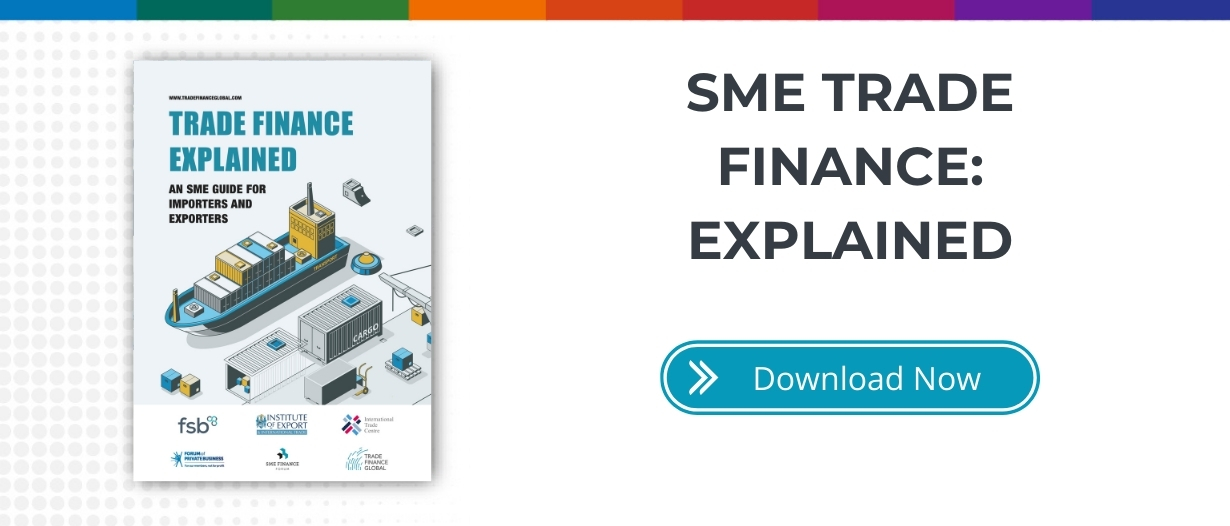LONDON, 28th October 2020. The Federation of Small Businesses (FSB), Institute of Export & International Trade (IOE&IT), The International Trade Centre (ITC), Forum of Private Business (FPB), SME Finance Forum and Trade Finance Global (TFG) have today launched ‘Trade Finance Explained: A Guide for SME Importers and Exporters’ at the Global SME Finance Forum (managed by the IFC).
The guide is aimed at Small and Medium sized Enterprises (SMEs) which are importing or exporting, both overseas and domestically.
There are 550,000 exporting SMEs in the UK, with a potential contribution of up to £200bn to the UK’s economy (British Business Bank, February 2020). Information from ITCs UK Trade Partnerships Programme shows that emerging and developing economies trading with the UK, SMEs make up more than 70% of import supply chains. According to surveys by OECD, WTO & ITC, 74% of SMEs trading both goods and services say that access to affordable trade finance advances at the pre-invoicing stage is a top priority but also a major barrier to expanding exports. On the demand side, challenges lie around the lack of awareness of basic trade finance products. Many SMEs, on the other hand, do not think of themselves to be ‘international’ (despite having staff or assets abroad or trading in foreign currencies) and this is reflected in the quality of their preparations and financing applications.
The Covid-19 pandemic has exacerbated the challenges for SME access to trade and export finance as financing providers perceive a jump in supply chain disruptions and increased non-delivery and non-acceptance risks. However, in many countries supplying the UK, default risk on trade-related short-term financing remains relatively constant at around 2%[1] and trade in some sectors is at levels above those of the same period in 2019. This is why we are launching the Guide now.
The guide describes the main types of trade finance structures available to SME importers and exporters, outlines the methods of payment, risks and challenges, and shows how to access trade finance from various lending sources.
FSB Vice Chair Martin McTague said, “Around 20% of UK small businesses export to overseas markets. With the right support and tools, our research shows that this could increase to 40%. As we approach the end of the UK/EU transition period, and look to open up trade with new export markets around the world, small businesses don’t tend to know about trade finance and how it works.”
Mark Abrams, Director of Trade Finance, TFG, said: “We need to break down barriers, raise awareness and promote an understanding of how SMEs can expand their trade, and supply more goods and services cross-border.”
Ian Sayers, ITC’s Senior Adviser on Access to financing said: “Trade-related financing is well matched to SMEs current needs and business horizons, especially during COVID recovery when the future holds many uncertainties”
Sayers added: “For many years trade financing has been seen as the business of international buyers. It is time for SMEs to realize its potential to support a pivot into new markets, new certifications, expansion of the work force and sustainability improvements.”





























